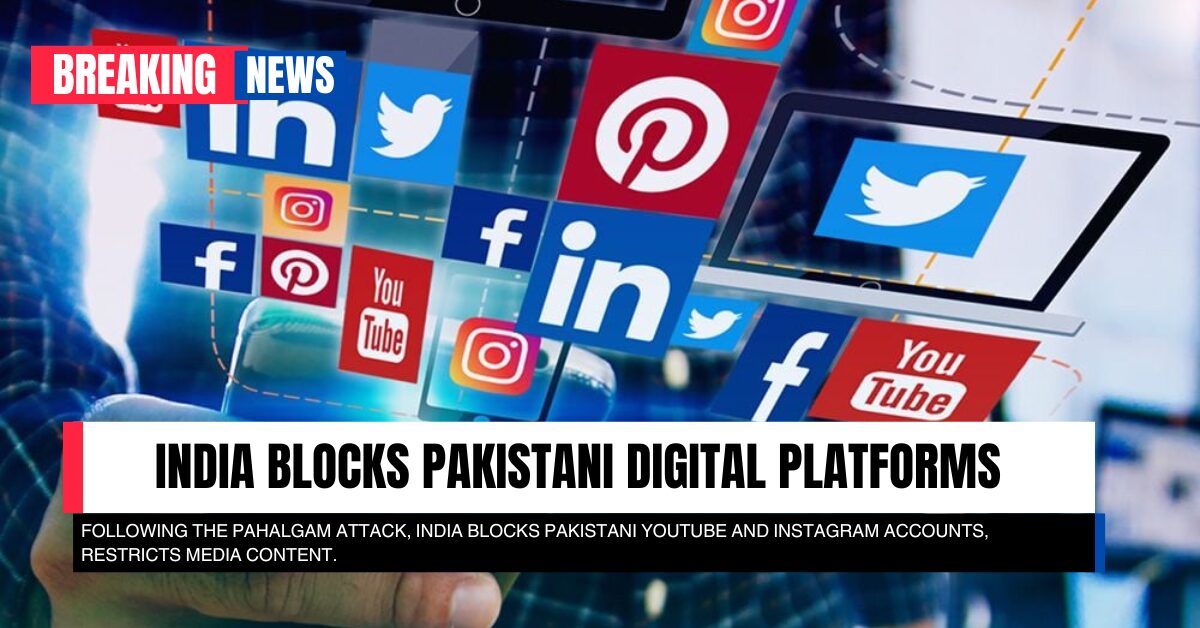India blocks Pakistani content after Pahalgam attack
In the aftermath of the devastating April 22 attack in Pahalgam, which claimed the lives of 26 civilians, India has intensified its measures against Pakistan, implementing a series of digital and diplomatic actions aimed at countering perceived threats to national security.
Digital Crackdown on Pakistani Content
India’s Ministry of Information and Broadcasting has invoked emergency provisions under the Information Technology Act to block access to several Pakistani digital platforms. This includes the official YouTube channel of Pakistan’s Prime Minister Shehbaz Sharif, which is now inaccessible to users in India, displaying a message citing national security concerns.
In addition to political figures, the crackdown extends to Pakistani media outlets and celebrities. Sixteen Pakistani YouTube channels, including prominent news networks like Dawn News and ARY News, have been banned for allegedly disseminating provocative content. Furthermore, Instagram accounts of renowned Pakistani cricketers such as Babar Azam, Mohammad Rizwan, and Shaheen Shah Afridi have been restricted, with users in India receiving notifications that these accounts are unavailable due to legal requests.
Diplomatic and Economic Measures
Beyond the digital sphere, India has taken significant diplomatic steps. It has formally requested the International Monetary Fund (IMF) to reassess its financial assistance to Pakistan, including a $7 billion bailout program and a recent $1.3 billion climate resilience loan. This move underscores India’s broader strategy to diplomatically isolate Pakistan in the wake of the Pahalgam attack.
These actions are part of a comprehensive response by India, which also includes suspending the Indus Waters Treaty and closing major border crossings. The situation remains tense, with international actors urging both nations to exercise restraint and engage in dialogue to prevent further escalation.





